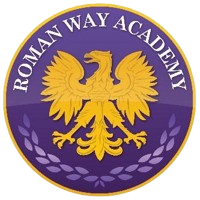Music
How we teach music at Roman Way Academy
Music is taught through a music curriculum programme called Sing Up.
Sing Up Music provides primary schools with the foundation to deliver a creative programme of high-quality music teaching and learning. It sets out the skills, knowledge and understanding to be gained by all pupils at each stage of learning, including the Early Years Foundation Stage.
We follow a two-year programme for mixed-age teaching.
Our music curriculum is organised into three phases: EYFS, KS1 and lower KS2.
Within each phase there is a 2-year programme (Year A and Year B), which has been devised to cover the expectations of the National Curriculum for Music. The children have a weekly music lesson from Reception onwards.
Sing Up’s music curriculum represents a progressive set of teaching resources that meets the requirements of the Statutory Framework for the Early Years Foundation Stage (Expressive Arts), the National Curriculum for Music and suggested approaches of the Model Music Curriculum (Singing, Listening, Composing, Performance/Instrumental Performance).
Unit and lesson by lesson learning outcomes inform the teaching, as well as ongoing formative assessment. Children are given immediate verbal feedback in lessons.
Reasonable adjustments are made to ensure that all children, including those with SEND, are fully included.
Covering a broad and diverse range of repertoire, approaches, and musical traditions, Sing Up Music supports a fully-integrated approach to musical development, connecting the interrelated strands of: singing, playing, performing, composing, improvising, listening, and appraising.
We at Roman Way have a love of music and children are offered a variety of clubs e.g. singing in a choir, learning to play the recorder and ukulele.
Children enjoy singing daily in assemblies and there is a weekly singing practice assembly for key stage 1 and key stage 2. Children also learn and perform songs as part of school productions and class assemblies.
